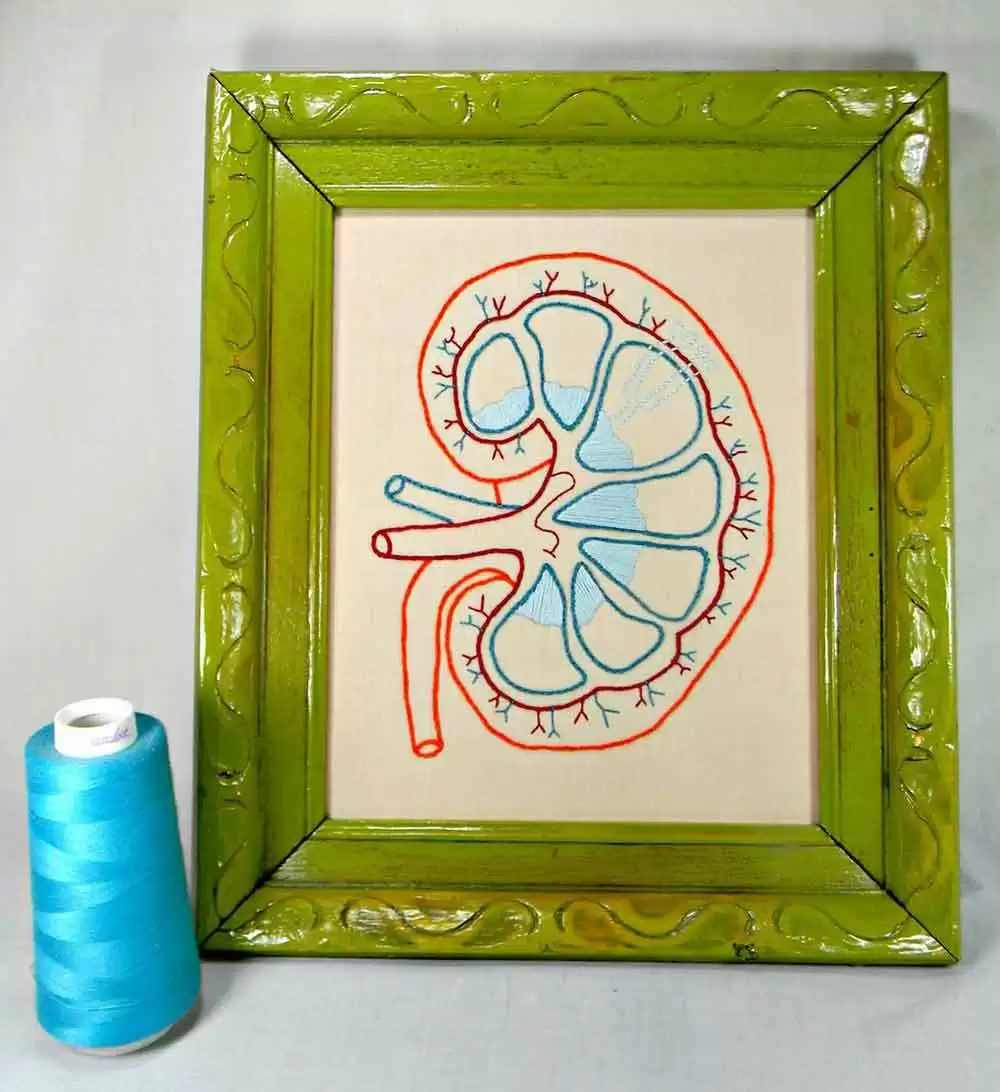
Celiac.com 08/09/2019 - I have been asked to make you aware of a new Clinical Study opportunity for people with kidney damage caused by celiac disease. First, have you ever been diagnosed with enteric hyperooxaluria? If you have, you may be eligible for a clinical research study undertaken by Allena Pharmaceuticals. With a long name like that you may wonder what it is. It is a condition in which there are high levels of oxalate in which there are high levels of oxalate in the urine. Oxalate is a chemical substance found naturally in foods like spinach, nuts, chocolate and tea. It is also a normal by product of metabolism and is removed from the body by the kidneys as waste in the urine. Enteric hyperoxaluria is caused by an underlying gastrointestinal condition, like celiac disease, that leads to absorption of too much oxalate from foods.
One of the first signs of hyperoxaluria is a kidney stone, and if you have one of those you sure know about the pain they can cause. Currently there is no approved medication for treating hyperoxaluria. The study is a drug investigation for treating hypoxaluria called uriROX-1, and is designed to learn more about the effects of the investigational drug, ALLN-177 on reducing the levels of oxalate in the urine compared to a placebo. It is not currently approved by the U.S. Food and Drug Administration or another regulatory authority for treating hyperoxaluria.
Celiac.com Sponsor (A12):
I was not aware that people with celiac disease have a higher incidence of kidney stones, but I have seen full grown men on the floor with the pain from a kidney stone. When I was working we had diet sheets to help decrease the incidence of kidney stones, but just in case you are a celiac that is troubled with kidney stones you should be aware of this. Thousands of people participate in clinical research globally each year. The Celiac Disease Foundation is proud to be working with Allens to recruit patients for this study If you are interested in learning more about uriROX-1 study, visit uriroxstudies.com.
Non-Celiac Wheat Sensitivity
Did you know that good things for us come out of clinical studies? In 2016 researchers confirmed physical evidence of immune system activation and intestinal damage when wheat is consumed by some individuals without celiac disease and wheat allergy. Researchers at Columbia University, including Dr. Peter Green, a member of Celiac Disease Foundation's Medical Advisory Board and Director of Columbia University's Celiac Disease Centre confirmed that wheat exposure in this group is, in fact, triggering a systemic immune reaction and accompanying intestinal cell damage. It is estimate that the impacted population is equal to or even exceeds the number of individuals with celiac disease (the vast majority of whom remain undiagnosed).
Dr. Armin Alaedini, says there is some ambiguity there, which is why we are referring to it as non-celiac wheat sensitivity for now. Further studies are needed. This is the first time that they had found specific bio-markers that explain the crippling impact of wheat exposure in some people who do not have celiac disease. More research is needed. Just think of the people, going from doctor to specialist, scopes to x-rays, and then being told that they not only do not have celiac disease, but have nothing wrong with their stomach or bowels. I know the latest statistics says it can take eight years to reach a diagnoses of celiac disease, but how demoralizing, mentally disturbing and failure defeating it must be to go on multiple doctor investigations to be dismissed without an answer. Wheat is making them sick, even though they do not have celiac disease. People are telling them that it is just a trend to eliminate gluten from the diet, and they are fine. Now some of these people may finally have an answer—non-celiac wheat sensitivity.
People have been suffering with potential long-term damage to both the body and mind. There are millions suffering from this condition; sometimes the patient has not written down all their symptoms, kept a log or journal, and the concern regarding kidney disease is higher in celiac patients.
You may not be aware but at one time the peri-menopausal woman was labelled just that when she went into her family physician with complains of stomach bloating, abdominal pain, nausea, diarrhea and weight loss. I know this because I read the charts of women who were at the end of their rope. That is when they were diagnosed as “depressed” menopausal, or in extreme circumstances, neurotic. It was not fair, and only through research are these things being brought to our attention now.
These research projects usually take two or three years to compile, but the long term impact of living with the disorder, especially if undiagnosed can be mind defeating. This research is now your validation. They now have scientific evidence to explain what hundreds of thousands of patients have rightly asserted, but have too often been dismissed as being fanciful or exaggerated. My advice to you is to keep knocking, searching and yes complaining. If you find an article on the Web that upon reading it sounds just like your experience, print it off and take it to your family physician. Physicians cannot read every journal that comes across their desks, and you somehow have to be their researcher if you want to gain control of your own health.











Recommended Comments
Create an account or sign in to comment
You need to be a member in order to leave a comment
Create an account
Sign up for a new account in our community. It's easy!
Register a new accountSign in
Already have an account? Sign in here.
Sign In Now